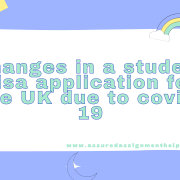Executive Summary
This report has been performed in three different parts, where the first section is for outlining the background information and statistical viewpoints on selected industry and later on same for the company. Part 1 has been completed by selecting British Airways as the company, from the airline and tourism industry. Real-time data and statistics have been added properly to meet the criteria. Different analytical frameworks like PESTLE and SWOT have been included in part 2. Along with this, for measuring competitive advantage, Porter’s generic strategy has been used in this paper. Eventually, the importance of CSR in current business time and the role of effective leadership has been elaborated in part 3. Recommendation for greater competitive advantage has also been added in this paper.
PART 1
Introduction
Business is affected by internal and external factors which simply create the business environment. Business is influenced by the global environment including some uncontrollable national or international factors which impact the organisational operations while affecting the demand and supply graph of the organisation. The aim of the report is to develop a greater knowledge of the organisational operations in a wider business environment. This report includes the micro and macro factors affecting the business of an organisation in the context of British Airways and identifies the needs and approaches of BA in performing CSR operations for greater business sustainability. The objective is to apply the PESTEL analysis framework to identify the external factors of the UK, which could directly or indirectly impact BA. Next is to reveal strengths, weaknesses, opportunities and threats of the company by applying the SWOT framework. . The next objective is to measure the competitive advantage of the organisation in the UK business environment by using Porter’s generic model. The importance of Corporate Social Responsibility will be discussed under this report and the leadership techniques of the organisation will be concluded. Tourism is an activity of people visiting new places and staying outside their common environment. The purposes of travelling may be different but it gives business to the tourism industry (Jaelani, 2017). According to reports, the tourism industry has a huge impact on the economy of the United Kingdom. This industry supports over 3.8 million jobs in the UK and contributes about £106 billion to the British economy (Séraphin et al., 2018). The tourism industry can be recognised by people travelling all over the world. This tourism industry gives entertainment to people who visit places as well as gives employment to a large number of the population. Many people are working in this industry and being one of the biggest industries, it is responsible for the economy of many countries. The tourism industry was started around the 17th century mainly in western Europe (Demunter, 2017). People travel for some travel motivations including food, shelter, water, safety. This industry also helps in the development of the infrastructures of host countries. It attracts the travellers to give visits to that place while increasing the interactions between different types of people. The tourism industry helps to build relations between people having cultural differences and differences in beliefs and religions. It is suspected that around 2025 the tourism industry of the United Kingdom will be worth around £257 billion which is around 10% of the GDP of the UK (Medlik, 2016).
British Airways, the largest international airline situated in Heathrow airport in London. It has a global partnership with US Air in the United States, European airlines and Qantas in Australia with a large number of employees. In 2019, BA was an employer to 42,322 people in the United Kingdom (Mills, 2017). British Airways services around 95 million passengers over a year (Rose, 2016). They have usage of 441 airports in 86 different countries and serve more than 1,000 planes in a year (Efthymiou et al., 2019). It has contributed to the UK’s GDP of over £10 billion in 2019. After the 1st World War, air services gained popularity with the advanced technology of aircraft. People start travelling to many places with airways influencing the airline industry as well as the tourism industry of the UK. At first, the airways offered their services from London to Paris and within five years it had started flying to Britain. In 1935, British Airways was formed from some separate private companies and after some time it grew as a whole company in the UK (Coller et al., 2016). British Airways has a mission of providing the best service to its customers and being the leader in the world travel industry. This airway has a large impact on the revenues of the economy of the UK government. As the annual report says, British Airways generated about 13.3 billion British pounds in revenue (Taylor et al., 2019).
PART 2
PESTEL analysis
| Elements | Factors | Impact |
| Political | ● Brexit Policy
● High taxation policy ● Stable political environment |
The Brexit policy is mainly the withdrawal of the EU from the UK. It creates some challenging situations for travelling (McConnell and Tormey, 2020). After this policy, airlines need to seek permission to fly to an EU country which impacts the business of British Airways.
The United Kingdom has a stable political environment which positively affects the business of organisations. Though the taxation policy of the UK is very high. According to the reports, the UK government received around £183 billion in income taxes in 2017/18 (Buckton et al., 2018). The huge taxation policy has an impact on the tourism industry as it increases the cost of the business.
|
| Political | ● Brexit Policy
● High taxation policy ● Stable political environment |
The Brexit policy is mainly the withdrawal of the EU from the UK. It creates some challenging situations for travelling (McConnell and Tormey, 2020). After this policy, airlines need to seek permission to fly to an EU country which impacts the business of British Airways.
The United Kingdom has a stable political environment which positively affects the business of organisations. Though the taxation policy of the UK is very high. According to the reports, the UK government received around £183 billion in income taxes in 2017/18 (Buckton et al., 2018). The huge taxation policy has an impact on the tourism industry as it increases the cost of the business.
|
| Economic
|
● Less than 2% Inflation rate since last three years
● Excellent annual GDP growth rate ● The high income per capita ● COVID-19 |
Changes in the economic situations including inflation rates, exchange rates or GDP will impact the profits, revenue and sales of the tourism industry.
The GDP rate of the UK is over 1.4% offering great opportunities to the airways organisations including BA to maximise their profitability figure (Lee and Werner, 2018). The inflation rate of the UK is less than 2% for the last three years, which could provide greater financial stability in the business of British Airways. Per capita income concludes the income of individuals while identifying the standards of living for the population of the United Kingdom. The report says the UK had a GDP per capita of 42,943.90 USD in 2018 (Khan and Qianli, 2017). The UK has a high income per capita which gives a larger business to British Airways as people travel very often. Though the coronavirus effects are very high on the tourism business of the UK. The UK government lost up to £22bn in the tourism industry due to COVID-19. It had a negative impact on British Airways as people felt fear of travelling. This reduces the business of airlines. |
| Social | ● The population of over 66 million fellow citizens
● Developed societal condition ● Less crime rate |
A huge population rate of the United Kingdom increases the business of the tourism industry in a wide business environment. According to the reports, more than 66 million people live in the Uk and it is suspected that the number will pass 70 million in 2031 (Pierce et al., 2020).
Changes in the lifestyle of people affect the demands of customers. So the British Airlines always tries to focus on their infrastructures in order to satisfy customers’ needs. Developed societal condition of the UK has a positive impact on the airline industry as well as the tourism industry. |
| Technical | ● Digital Technology
● Technological infrastructure |
In the airline industry, the development of digital technology brings better business to the airways. British Airways uses advanced technology in order to give service to the customers (Wang et al., 2017).
Technological infrastructure of BA is used to increase the engineering operations while satisfying the needs of the customers (Suau-Sanchez and Voltes-Dorta, 2019). |
| Legal | ● Government policies
● Tourism act, 1969 ● Health and safety act, 1974 ● Equality act, 2010 |
Tourism act, 1969 provides the establishment of the British Tourist Authority and the Tourist Boards. This act is used for promoting tourism business to and within Great Britain (Sidorov, 2018). British Airways enlarges its business with the help of this tourism act.
Discrimination between employees has a negative impact on the business while decreasing the sales of the organization. The UK government-generated Equality act, 2010 on the organizations help to increase the business (Fell and Dyban, 2017). This act prevents employees of British Airways from any kind of discrimination in the workplace. |
| Environmental | ● Environment Protection act, 1990
● Recycling of plastic products |
The Environmental Protection act, 1990 makes provision for pollution control. It somehow hampers the business of British Airways as they have to follow many rules and regulations regarding environmental issues (Reid, 2016).
Recycling of plastic products and usage of eco friendly products within British Airways increase the brand value of the organisation in the context with BA. |
| Environmental | ● Environment Protection act, 1990
● Recycling of plastic products |
The Environmental Protection act, 1990 makes provision for pollution control. It somehow hampers the business of British Airways as they have to follow many rules and regulations regarding environmental issues (Reid, 2016).
Recycling of plastic products and usage of eco friendly products within British Airways increase the brand value of the organisation in the context with BA. |
| Environmental | ● Environment Protection act, 1990
● Recycling of plastic products |
The Environmental Protection act, 1990 makes provision for pollution control. It somehow hampers the business of British Airways as they have to follow many rules and regulations regarding environmental issues (Reid, 2016).
Recycling of plastic products and usage of eco friendly products within British Airways increase the brand value of the organisation in the context with BA.
|
Strengths
|
Weaknesses
|
Opportunities
|
Threats
|
Organization’s competitive advantage with Porter’s Generic Strategies
Competitive advantage is mainly the factor that influences the organization to provide better services than its competitors in the market. Michael Porter introduced these generic strategies for the organizations in order to increase the competitive advantage in the respective industry. With using Porter’s Generic Strategies the organisation’s competitive advantage can be concluded. These strategies are used to increase the competitive advantage of any organization in the context of British Airways. Porter’s generic strategies lead to three generic stages in order to gain a competitive advantage in the market (Islami et al., 2020). Firstly, Cost leadership strategy the organization tries to become a low-cost producer in the respective industry. A low-cost producer focuses on all the sources of cost advantage. This strategy can be implemented by reducing costs while maintaining the profits of the organization. The next strategy is Differentiation which concludes the uniqueness of the products or services provided by the organization. The organizations set their products uniquely in order to satisfy their customer’s needs. With help of this strategy, organisations can achieve uniqueness in the respective industry with a premium price. The last component includes Focusing on the narrow scopes within the industry (Hales and Mclarney, 2017). In the cost leadership focus, the organization finds the cost advantages in its target within the industry and in the case of differentiation focus, it makes differentiation in the target parts.
References
Adenan, M.A., Ali, J.K. and Rahman, D.H.A.A., 2018. Country of origin, brand image and high involvement product towards customer purchase intention: empirical evidence of east Malaysian consumer. Jurnal Manajemen dan Kewirausahaan, 20(1), pp.63-72.
Buckton, C.H., Patterson, C., Hyseni, L., Katikireddi, S.V., Lloyd-Williams, F., Elliott-Green, A., Capewell, S. and Hilton, S., 2018. The palatability of sugar-sweetened beverage taxation: a content analysis of newspaper coverage of the UK sugar debate. Plos one, 13(12), p.e0207576.
Cannon, J.N., Ling, Z., Wang, Q. and Watanabe, O.V., 2020. 10-K disclosure of corporate social responsibility and firms’ competitive advantages. European Accounting Review, 29(1), pp.85-113.
Chukwusa, J., 2018. Autocratic leadership style: Obstacle to success in academic libraries. Library Philosophy and Practice, p.1.
Coller, K.E., Helms Mills, J. and Mills, A.J., 2016. The British Airways Heritage collection: An ethnographic ‘history’. Business History, 58(4), pp.547-570.
Demeter, C., 2017. Tourism statistics: early adopters of big data. Publications Office of the European Union: Luxemburg.
Dierksmeier, C. and Seele, P., 2018. Cryptocurrencies and business ethics. Journal of Business Ethics, 152(1), pp.1-14.
Dvorak, J. and Razova, I., 2018. Empirical validation of blue ocean strategy sustainability in an international environment. Foundations of Management, 10(1), pp.143-162.
Efthymiou, M., Njoya, E.T., Lo, P.L., Papatheodorou, A. and Randall, D., 2019. The Impact of Delays on Customers’ Satisfaction: an Empirical Analysis of the British Airways On-Time Performance at Heathrow Airport. Journal of Aerospace Technology and Management, 11.
Fell, E.V. and Dyban, M., 2017. Against Discrimination: Equality Act 2010 (UK). The European Proceedings of Social & Behavioural Sciences (EpSBS). Vol. 19: Lifelong Wellbeing in the World (WELLSO 2016).—Nicosia, 2017., 192016, pp.188-194.
Haris, A.M. and Purnomo, E.P., 2017. Implementasi CSR (Corporate Social Responsibility) PT. Agung Perdana Dalam Mengurangi Dampak Kerusakan Lingkungan. Journal of Governance and Public Policy, 3(2), pp.203-225.
Hoque, A., Shikha, F.A., Hasanat, M.W., Arif, I. and Hamid, A.B.A., 2020. The effect of Coronavirus (COVID-19) in the tourism industry in China. Asian Journal of Multidisciplinary Studies, 3(1), pp.52-58.
Jaelani, A., 2017. The halal tourism industry in Indonesia: Potential and prospects. International Review of Management and Marketing, 7(3).
Khan, S.A.R. and Qianli, D., 2017. Do national scale economic and environmental indicators spur logistics performance? Evidence from the UK. Environmental Science and Pollution Research, 24(34), pp.26692-26705.
Lee, K.S. and Werner, R.A., 2018. Reconsidering monetary policy: An empirical examination of the relationship between interest rates and nominal GDP growth in the US, UK, Germany and Japan. Ecological Economics, 146, pp.26-34.
Lohmann, G. and Spasojevic, B., 2018. Airline business strategy. The routledge companion to air transport management, pp.139-153.
McConnell, A. and Tormey, S., 2020. Explanations for the Brexit policy fiasco: near-impossible challenge, leadership failure or Westminster pathology?. Journal of European Public Policy, 27(5), pp.685-702.
Medlik, S. ed., 2016. Managing tourism. Elsevier.
Mills, A.J., 2017. Man/Aging Subjectivity, Silencing Diversity: Organizational Imagery in the Airline Industry. The Case of British Airways☆. In Insights and Research on the Study of Gender and Intersectionality in International Airline Cultures. Emerald Publishing Limited.
Pierce, M., Hope, H., Ford, T., Hatch, S., Hotopf, M., John, A., Kontopantelis, E., Webb, R., Wessely, S., McManus, S. and Abel, K.M., 2020. Mental health before and during the COVID-19 pandemic: a longitudinal probability sample survey of the UK population. The Lancet Psychiatry, 7(10), pp.883-892.
Reid, C.T., 2016. Brexit and the future of UK environmental law. Journal of Energy & Natural Resources Law, 34(4), pp.407-415.
Rose, P., 2016. A lifetime in airline revenue management. Journal of Revenue and Pricing Management, 15(3-4), pp.197-202.
Séraphin, H., Platania, M., Spencer, P. and Modica, G., 2018. Events and tourism development within a local community: the case of winchester (UK). Sustainability, 10(10), p.3728.
Sidorov, V., 2018. Individual Aspects in Professional Training of Tourism Specialists in the UK. Comparative Professional Pedagogy, 8(2), pp.43-50.
Stuart, H., 2018. Corporate branding and rebranding: an institutional logics perspective. Journal of Product & Brand Management.
Suau-Sanchez, P. and Voltes-Dorta, A., 2019. Drivers of airport scheduled traffic in European winter tourism areas: Infrastructure, accessibility, competition and catchment area. Journal of Air Transport Management, 81, p.101723.
Tan, L., 2019. CorporateMetrics Methodology Application for the Market Risk Quantification in British Airways Company.
Tan, L., 2019. CorporateMetrics Methodology Application for the Market Risk Quantification in British Airways Company.
Taylor, P., Moore, S. and Byford, R., 2019. Cabin Crew Conflict-The British Airways Dispute 2009-11.
Verbruggen, F., Aron, A.R., Band, G.P., Beste, C., Bissett, P.G., Brockett, A.T., Brown, J.W., Chamberlain, S.R., Chambers, C.D., Colonius, H. and Colzato, L.S., 2019. A consensus guide to capturing the ability to inhibit actions and impulsive behaviors in the stop-signal task. Elife, 8, p.e46323.
Wall, T., 2018. Infusing ethics into leadership learning & development. Routledge.
Wang, J., Lu, K., Ma, L., Wang, J., Dooner, M., Miao, S., Li, J. and Wang, D., 2017. Overview of compressed air energy storage and technology development. Energies, 10(7), p.991.











